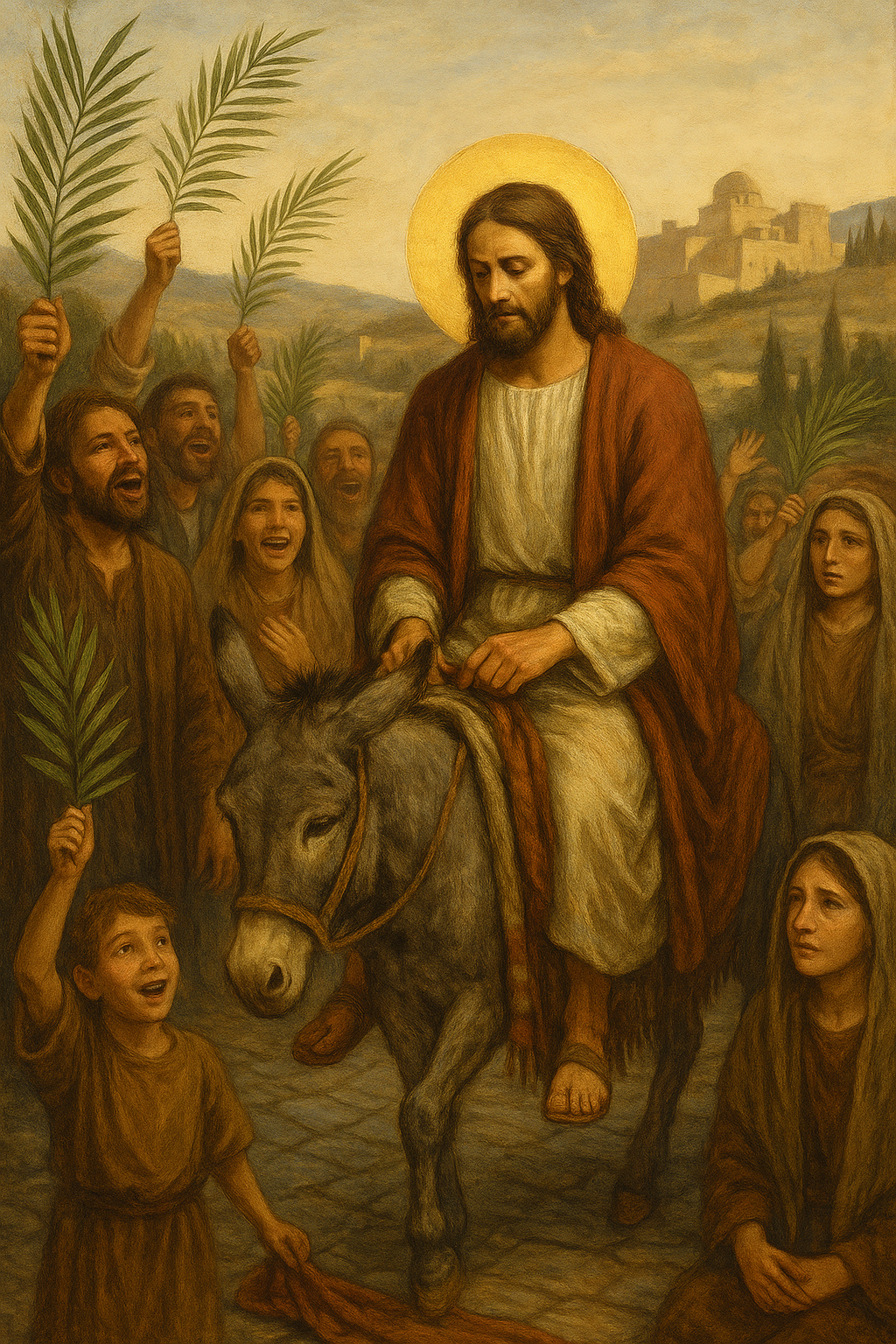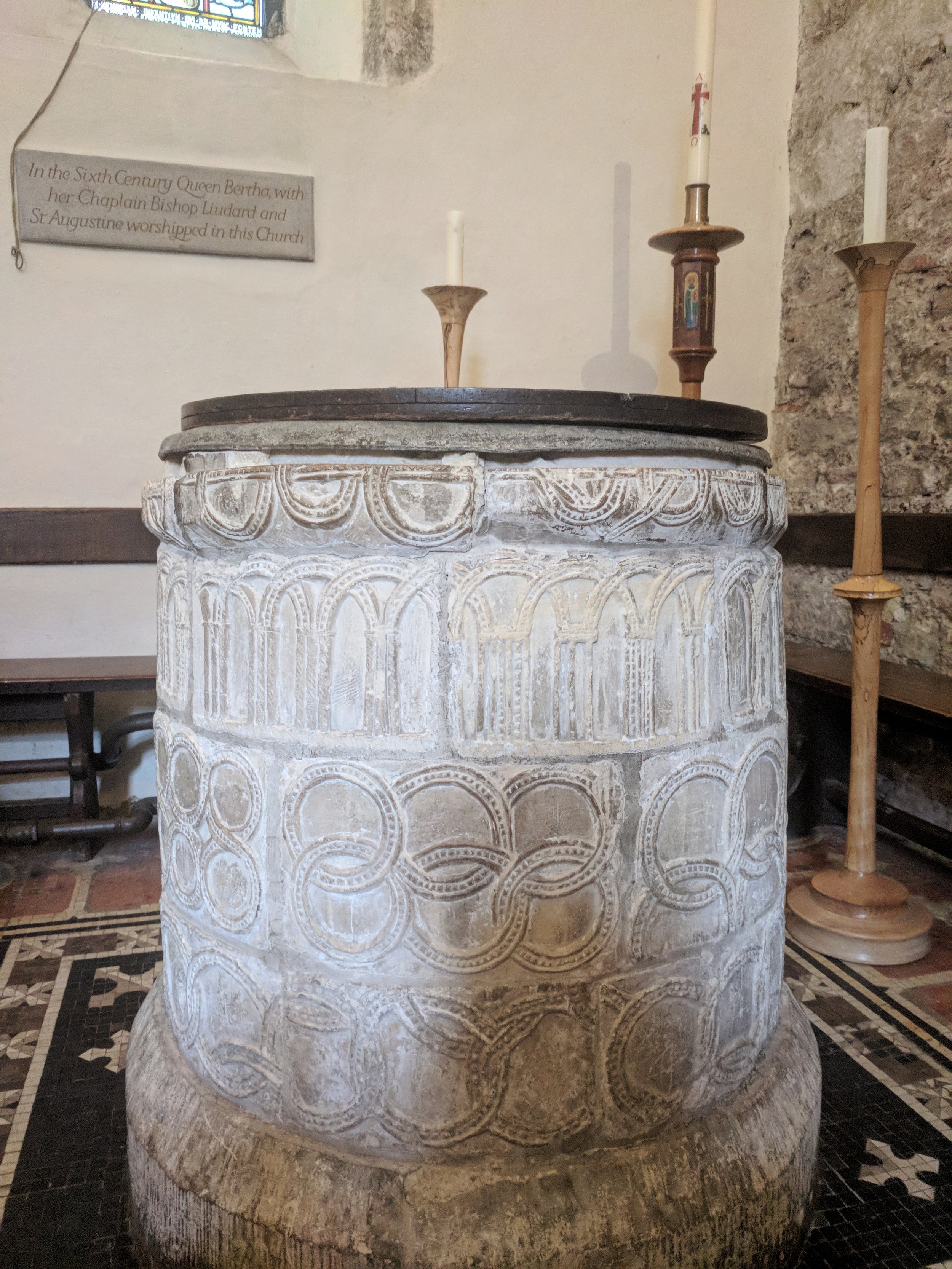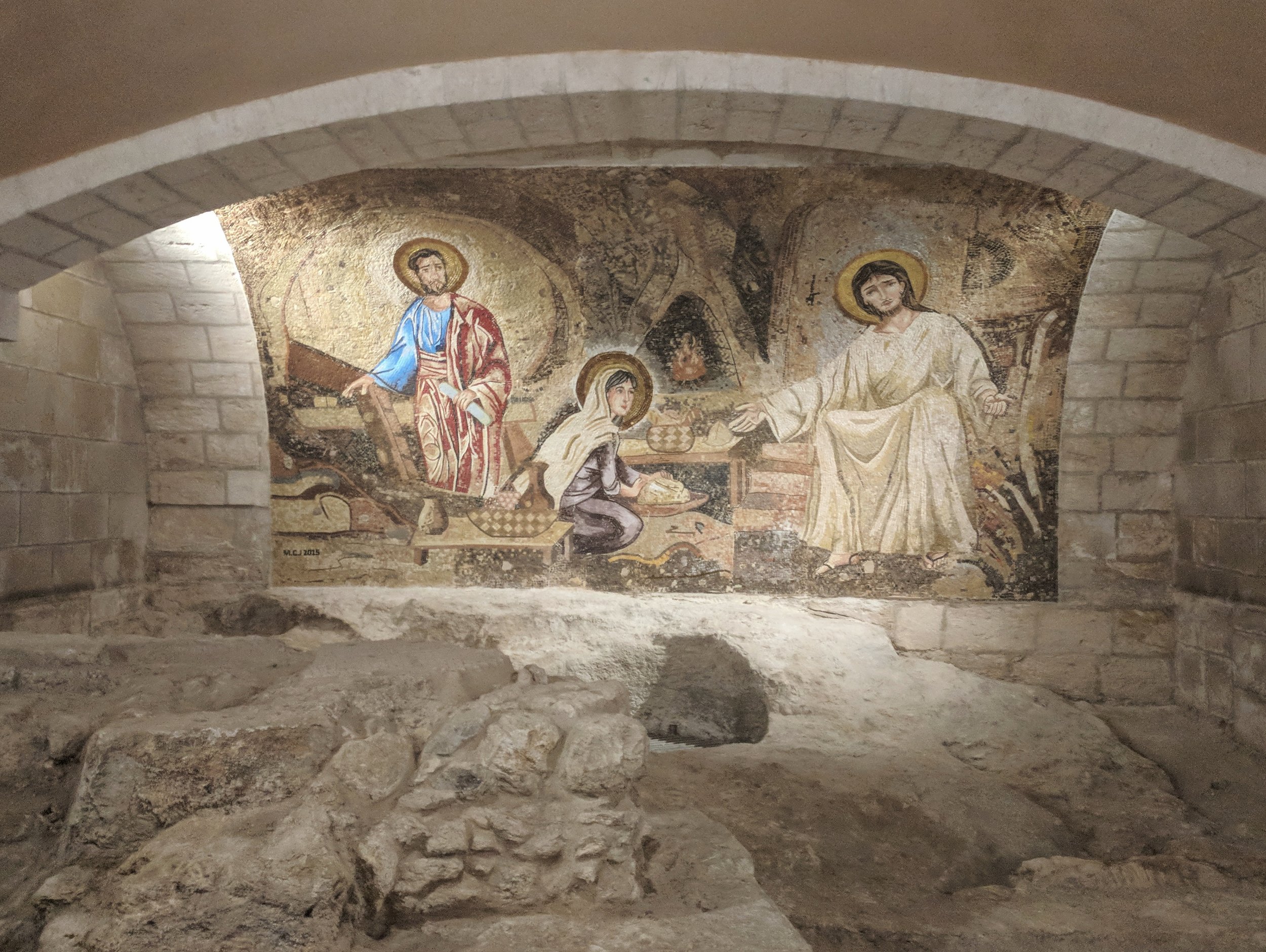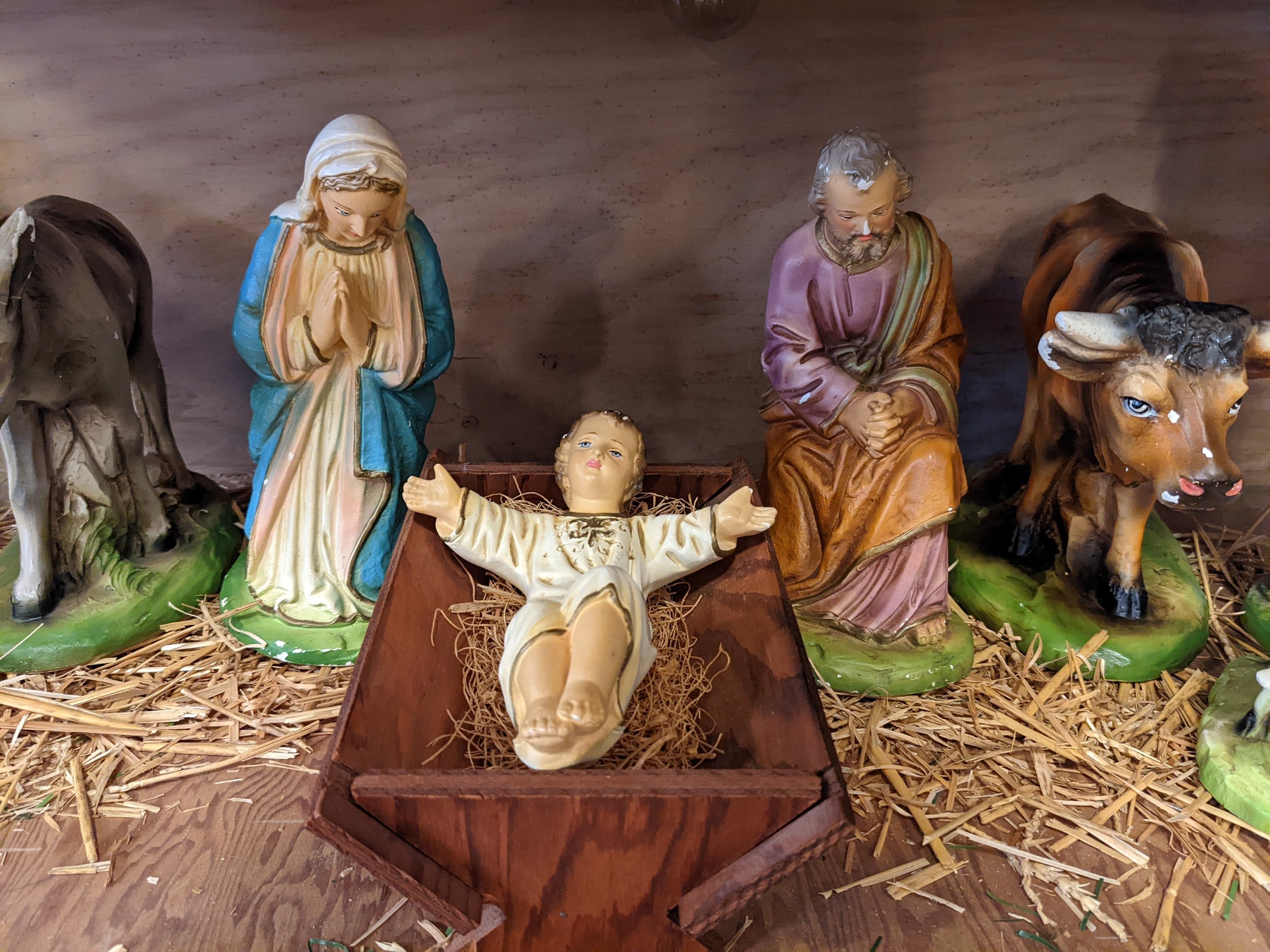You can find video of all of our live-streamed services on our YouTube page: youtube.com/@stpaulsmanhattan

Washing feet
Whether you came tonight out of habit and you’re not really into it, or whether you’ve never been to this service before and you just came to try it out, or whether you’re like me, and you’re looking to hold on to something that is true, I invite you all to come forward to wash one another’s feet.
I promise, it isn’t as awkward as it seems.
Please, join us in this somewhat weird and always powerful act of service; because, tomorrow Jesus will be put to death, but tonight, we remember that we are responsible for one another. Amen.

A blessing of discomfort
A member of St. Paul’s sent me the text of a blessing that fits well with this week, a good melding of the physical and the spiritual. A good reminder that the road to Easter is a hard road. Here’s how it goes:
“May God bless us with discomfort — discomfort at easy answers, half-truths, and superficial relationships, so that we may live deep within our hearts. May God bless us with anger — anger at injustice, oppression, and exploitation of people, so that we may work for justice, freedom, and peace. May God bless us with tears — tears to shed for those who suffer from pain, rejection, hunger, and war, so that we may reach out our hands to comfort them and turn their pain into joy. And may God bless us with foolishness — enough foolishness to believe that we can make a difference in this world, so that we can do what others claim cannot be done.”

I’m the type of person who…
Have you ever said, “I am the type of person who… likes, does, tries, supports, wants” etc. —and then you fill in the details to give someone an idea of your character, your preferences, or your boundaries?
Have you ever said, “He (or she) is the type of person who…” and then you add actions, descriptors, commentary, perhaps praise or even criticism?

A prodigal prism
The parable of the prodigal son is one of the richest passages in scripture. No matter how many times you’ve read it or listened to it, you can find something new. The parable is like a lens with many surfaces, a prism you can hold up to your eye and look through to find a new perspective—a new perspective on grace, on family, on sin, on forgiveness, on responsibility.


A life of faith
What does it mean to live a life of faith?
Is faith mostly about believing certain propositions about God? Belief is part of faith, certainly. But if you think of faith as just an intellectual exercise, you’re missing out on a lot.

All shall be well
I have a ceramic sign in my office that says, “All shall be well.” It’s a quotation from Julian of Norwich. “All shall be well, and all shall be well, and all manner of thing shall be well.”
I believe that’s true. But there’s an unspoken “someday” at the end of the phrase. All shall be well...in God’s time. All shall be well...in the final analysis. All shall be well...eventually. All shall be well...someday.
But maybe not immediately.

Ash Wednesday
We need the reminders that Ash Wednesday gives us. We need to remember that we are mortal—and fallible. We need the disciplines of the season of Lent—maybe especially in a time like this.

Down the mountain
Though Peter may understand up on that mountain that the way he sees the world is nothing like the way Jesus sees the world, he doesn’t yet know that death is not the end, hasn’t yet grasped that God is so fully in charge, pain and suffering are not the end either.
This makes it all the more astonishing to me that Peter followed Jesus down the mountain. Peter didn’t know that this story doesn’t end, but he walked side by side with Jesus anyway.

Love your enemies
What does it really mean to love your enemy? What does it mean to forgive? What does it mean to give, expecting nothing in return?

(not the) Sermon on the Mount
You probably know the scene that’s been made famous by so many paintings: Jesus is sitting on a rock, on a hillside, surrounded by a crowd, perhaps with the Sea of Galilee off in the distance. In most of the paintings, Jesus has one arm raised in the air, underscoring his words, or blessing the crowd.
Jesus’s words are full of encouragement.
But that’s not the sermon we heard this morning.

Whom shall I send?
I’ve talked to a lot of people lately who are feeling anxious. Maybe you’re one of them. Headlines are scary, rumors are flying, and it’s hard to know what to do next. I wish I could tell you that God will fix everything, but that doesn’t seem to be God’s way. God will be with us through whatever comes, but the work is ours to do.


Learning to Listen
Our readings today make it clear to us that following Jesus is not easy. The path of discipleship that we follow is not the path that goes along to get along, it is not the path that turns a blind eye to suffering or remains silent in the face of injustice when it would be easier to do so. That was true for Jesus’ disciples, it’s what he is warning them about in our gospel reading, and it is true for us today. If we are to remain faithful to Jesus’ command to love God and love our neighbor, we may find ourselves opposed to any number of things happening around us, and maybe even in the very uncomfortable place of speaking truth to power, or the just as uncomfortable place of listening to things that are hard to hear.

God’s Call
The church is much more than just a beautiful building. The church is the body of Christ in the world. And we are members of that body, called each in our own way to do the work of God, to use our gifts, as St. Paul said, for the common good.
The opportunity to be a part of the mission of God in the world is itself a gift.

A baptized life
Jesus’s baptism is less about something that happened to him and more about what it tells us about who he is.
It’s less about water and more about the voice that came from heaven saying, “You are my Son, the Beloved; with you I am well pleased.”
It’s less about John the Baptist standing in a river and more about what Jesus came to do.

Incarnation
Jesus’s incarnation is about more than his birth. It’s about the whole of his life. Jesus was a refugee and an exile. He lived in a time of violence and tragedy. He was a child—a real, human child. He worried and sometimes angered his parents.

An ordinary story?
We probably all know the story of Christmas, the story we just heard from the Gospel of Luke. Joseph and Mary travel to Bethlehem, but can’t find a place to stay. Mary’s baby is born in a space normally reserved for animals, and she wraps him in bands of cloth and lays him in a manger. An angel announces the news of Jesus’s birth to shepherds watching their flocks in the fields by night. Later, wise men from the east follow a star and arrive with gifts appropriate to a royal baby—gold, frankincense, and myrrh—for a child born in a very non-royal setting.
It’s a familiar story, a story of shepherds and angels, of a journey and a new birth, of wise men and a star. It’s a story we all know.

Mary’s Song
The truth is that we’ve domesticated Mary. We’ve made her unthreatening. A pretty girl in blue. I suspect that we’ve done that because we don’t want to listen too closely to her song, and to her challenge.
“He has shown the strength of his arm, * he has scattered the proud in their conceit. He has cast down the mighty from their thrones, * and has lifted up the lowly. He has filled the hungry with good things, * and the rich he has sent away empty.”

Rejoice! You brood of vipers!
It's jarring. We go from “Rejoice and exult with all your heart!” to Repent, “you brood of vipers”!—all in the same Sunday.
But actually, I think that’s as it should be.

